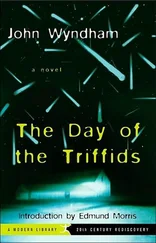John Florio - The Decameron (Day 6 to Day 10)
Здесь есть возможность читать онлайн «John Florio - The Decameron (Day 6 to Day 10)» — ознакомительный отрывок электронной книги совершенно бесплатно, а после прочтения отрывка купить полную версию. В некоторых случаях можно слушать аудио, скачать через торрент в формате fb2 и присутствует краткое содержание. ISBN: , Жанр: foreign_antique, foreign_prose, на английском языке. Описание произведения, (предисловие) а так же отзывы посетителей доступны на портале библиотеки ЛибКат.
- Название:The Decameron (Day 6 to Day 10)
- Автор:
- Жанр:
- Год:неизвестен
- ISBN:http://www.gutenberg.org/ebooks/52618
- Рейтинг книги:3 / 5. Голосов: 1
-
Избранное:Добавить в избранное
- Отзывы:
-
Ваша оценка:
- 60
- 1
- 2
- 3
- 4
- 5
The Decameron (Day 6 to Day 10): краткое содержание, описание и аннотация
Предлагаем к чтению аннотацию, описание, краткое содержание или предисловие (зависит от того, что написал сам автор книги «The Decameron (Day 6 to Day 10)»). Если вы не нашли необходимую информацию о книге — напишите в комментариях, мы постараемся отыскать её.
The Decameron (Day 6 to Day 10) — читать онлайн ознакомительный отрывок
Ниже представлен текст книги, разбитый по страницам. Система сохранения места последней прочитанной страницы, позволяет с удобством читать онлайн бесплатно книгу «The Decameron (Day 6 to Day 10)», без необходимости каждый раз заново искать на чём Вы остановились. Поставьте закладку, и сможете в любой момент перейти на страницу, на которой закончили чтение.
Интервал:
Закладка:
Ghinotto di Tacco; tooke the Lord Abbot of Clugni as his prisoner, and cured him of a grievous disease, which he had in his stomacke, and afterward set him at liberty. The same Lord Abbot, when hee returned from the Court of Rome, reconciled Ghinotto to Pope Boniface; who made him a Knight, and Lord Prior of a goodly Hospitall.
Wherein is declared that good men doe sometimes fall into bad conditions, onely occasioned thereto by necessity: And what meanes are to be used, for their reducing to goodnesse againe.
Mithridanes envying the life and liberality of Nathan, and travelling thither, with a setled resolution to kill him: chaunceth to conferre with Nathan unknowne. And being instructed by him, in what manner he might best performe the bloody deede, according as hee gave direction, hee meeteth with him in a small Thicket or Woode, where knowing him to be the same man, that taught him how to take away his life: Confounded with shame, hee acknowledgeth his horrible intention, and becommeth his loyall friend.
Shewing in an excellent and lively demonstration, that any especiall honourable vertue, persevering and dwelling in a truly noble soule, cannot be violenced or confounded, by the most politicke attemptes of malice and envy.
Signior Gentile de Carisendi, being come from Modena, tooke a Gentlewoman, named Madam Catharina, forth of a grave, wherein she was buried for dead; which act he did, in regard of his former honest affection to the said Gentlewoman. Madame Catharina remaining there afterward, and delivered of a goodly Sonne: was (by Signior Gentile) delivered to her owne Husband; named Signior Nicoluccio Caccianimico, and the young infant with her.
Wherein is shewne, That true love hath alwayes bin, and so still is, the occasion of many great and worthy courtesies.
Madame Dianora, the Wife of Signior Gilberto, being immodestly affected by Signior Ansaldo, to free herselfe from his tedious importunity, she appointed him to performe (in her judgement) an act of impossibility; namely, to give her a Garden, as plentifully stored with fragrant Flowers in January, as in the flourishing moneth of May. Ansaldo, by meanes of a bond which he made to a Magitian, performed her request. Signior Gilberto, the Ladyes Husband, gave consent, that his Wife should fulfill her promise made to Ansaldo. Who hearing the bountifull mind of her Husband; released her of her promise: And the Magitian likewise discharged Signior Ansaldo, without taking any thing of him.
Admonishing all Ladies and Gentlewomen, that are desirous to preserve their chastity, free from all blemish and taxation: to make no promise of yeelding to any, under a compact or covenant, how impossible soever it may seeme to be.
Victorious King Charles, sirnamed the Aged, and first of that Name, fell in love with a young Maiden, named Genevera, daughter to an Ancient Knight, called Signior Neri degli Uberti. And waxing ashamed of his Amorous folly, caused both Genevera, and her fayre Sister Isotta, to be joyned in marriage with two Noble Gentlemen; the one named Signior Maffeo da Palizzi, and the other, Signior Gulielmo della Magna.
Sufficiently declaring, that how mighty soever the power of Love is: yet a magnanimous and truly generous heart, it can by no meanes fully conquer.
Lisana, the Daughter of a Florentine Apothecary, named Bernardo Puccino, being at Palermo, and seeing Piero, King of Aragon run at the Tilt; fell so affectionately enamored of him, that she languished in an extreame and long sickenesse. By her owne devise, and means of a Song, sung in the hearing of the King: he vouchsafed to visite her, and giving her a kisse, terming himselfe also to bee her Knight for ever after, hee honourably bestowed her in marriage on a young Gentleman, who was called Perdicano, and gave him liberall endowments with her.
Wherein is covertly given to understand, that howsoever a Prince may make use of his absolute power and authority, towards Maides or Wives that are his Subjects: yet he ought to deny and reject all things, as shall make him forgetfull of himselfe, and his true honour.
Sophronia, thinking her selfe to be the maried wife of Gisippus, was (indeed) the wife of Titus Quintus Fulvius, & departed thence with him to Rome. Within a while after, Gisippus also came thither in very poore condition, and thinking that he was despised by Titus, grew weary of his life, and confessed that he had murdred a man, with full intent to die for the fact. But Titus taking knowledge of him, and desiring to save the life of Gisippus, charged himself to have done the bloody deed. Which the murderer himself (standing then among the multitude) seeing, truly confessed the deed. By meanes whereof, all three were delivered by the Emperor Octavius; and Titus gave his Sister in mariage to Gisippus, giving them also the most part of his goods & inheritances.
Declaring, that notwithstanding the frownes of Fortune, diversity of occurrences, and contrary accidents happening: yet love and friendship ought to be preciously preserved among men.
Saladine, the great Soldan of Babylon, in the habite of a Merchant, was honourably received and welcommed, into the house of Signior Thorello d'Istria. Who travelling to the Holy Land, prefixed a certaine time to his Wife, for his returne backe to her againe, wherein, if he failed, it was lawfull for her to take another Husband. By clouding himselfe in the disguise of a Faulkner, the Soldan tooke notice of him, and did him many great honours. Afterward, Thorello falling sicke, by Magicall Art, he was conveighed in one night to Pavia, when his Wife was to be married on the morrow: where making himselfe knowne to her, all was disappointed, and shee went home with him to his owne house.
Declaring what an honourable vertue Courtesie is, in them that truely know how to use them.
The Marquesse of Saluzzo, named Gualtiero, being constrained by the importunate solliciting of his Lords, and other inferiour people, to joyne himselfe in marriage; tooke a woman according to his owne liking, called Grizelda, she being the daughter of a poore Countriman, named Janiculo, by whom he had two children, which he pretended to be secretly murdered. Afterward, they being grown to yeres of more stature, and making shew of taking in marriage another wife, more worthy of his high degree and Calling: made a seeming publique liking of his owne daughter, expulsing his wife Grizelda poorely from him. But finding her incomparable patience; more dearely (then before) hee received her into favour againe, brought her home to his owne Pallace, where (with her children) hee caused her and them to be respectively honoured, in despight of all her adverse enemies.
Читать дальшеИнтервал:
Закладка:
Похожие книги на «The Decameron (Day 6 to Day 10)»
Представляем Вашему вниманию похожие книги на «The Decameron (Day 6 to Day 10)» списком для выбора. Мы отобрали схожую по названию и смыслу литературу в надежде предоставить читателям больше вариантов отыскать новые, интересные, ещё непрочитанные произведения.
Обсуждение, отзывы о книге «The Decameron (Day 6 to Day 10)» и просто собственные мнения читателей. Оставьте ваши комментарии, напишите, что Вы думаете о произведении, его смысле или главных героях. Укажите что конкретно понравилось, а что нет, и почему Вы так считаете.












